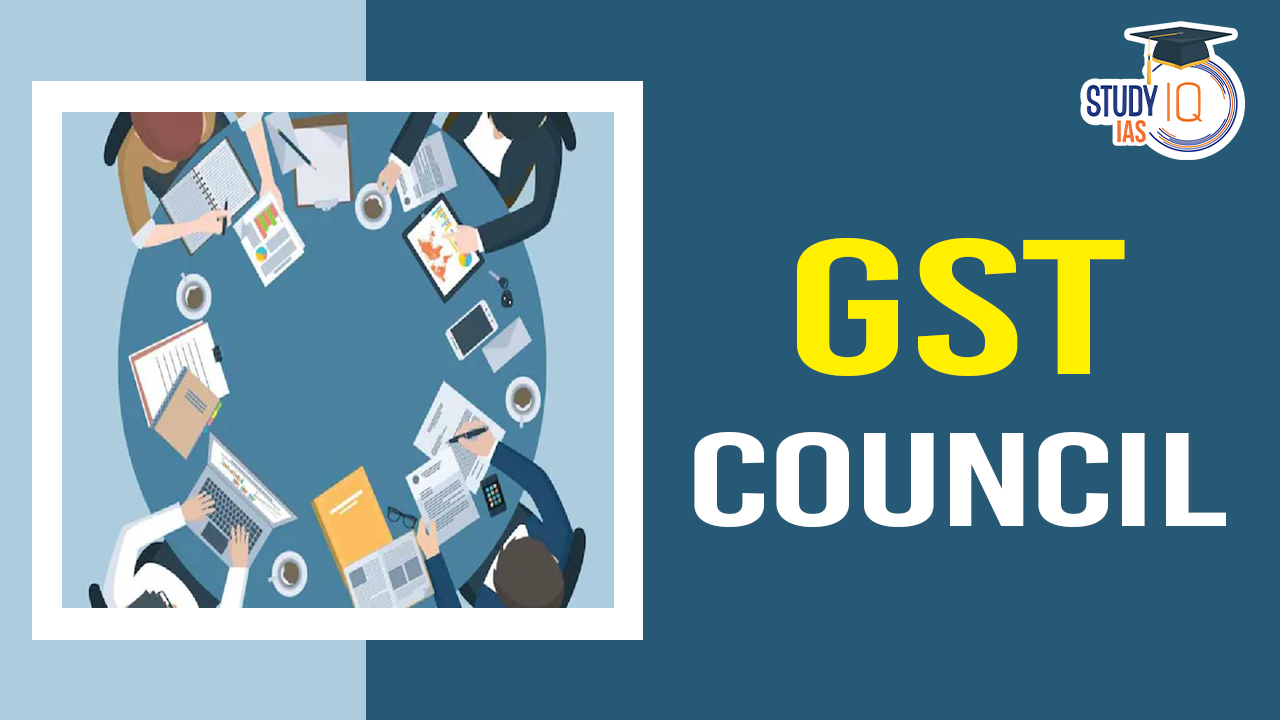Table of Contents
Context: The GST Council will hold its 56th meeting on September 3–4, 2025, in New Delhi to discuss GST rate cuts and reforms.
GST Council
- GST Council was established under the 101st Constitutional Amendment Act, 2016, through Article 279A.
- It is a constitutional body responsible for addressing GST-related issues and providing recommendations to both the Union and State governments.
- Secretariat is located in New Delhi.
Vision & Mission
- Vision: Promote cooperative federalism by creating a harmonised GST system.
- Mission: Develop a simplified, IT-driven GST structure through wide consultations.
Objectives
- Ensure smooth and uniform implementation of GST.
- Simplify tax structure, eliminate cascading taxes, and lower compliance costs.
- Monitor GST processes and prevent fraud.
Composition
- Chairperson: Union Finance Minister.
- Vice-Chairperson: Elected by members of the Council.
- Members:
- Union MoS (Finance/Revenue).
- Finance/Taxation Ministers of States (or nominated Minister).
- Permanent Invitee: CBIC Chairperson (non-voting).
- Ex officio Secretary: Union Revenue Secretary.
Constitutional Provisions (Article 279A)
- Formation: The President must constitute the GST Council within 60 days of the amendment.
- Levy on Specific Goods: Can recommend GST date for petroleum, diesel, petrol, natural gas, and aviation fuel.
- Guiding Principle: Promote a unified national market.
- Procedural Powers: Can decide its own working procedures.
- Validity: Council decisions remain valid despite vacancies or minor flaws.
- Dispute Resolution: Can settle disputes between the Centre and States regarding GST.
Functions (Article 279A(4))
Recommend on:
- GST rates, exemptions, and threshold limits.
- Goods & services under GST or exempted.
- Model GST laws and place of supply rules.
- Apportionment of GST in inter-state trade (Article 269A).
- Special rates apply in the event of disasters/calamities.
- Special provisions for North-Eastern & hilly states.
Working of the GST Council
- Quorum: At least half of the total members must be present.
- Decision-Making: Requires a 3/4th majority of weighted votes.
- Voting Power:
- Centre = 1/3rd weightage.
- States (collectively) = 2/3rd weightage.
Key Outcomes of GST Council
- Dual GST Model: Both the Centre and the States levy GST.
- Five Tax Slabs: 0%, 5%, 12%, 18%, 28% (with some cesses).
- Online Compliance System: E-filing, GSTN portal, e-way bills.
- Relief for Businesses: Input Tax Credit, Composition Scheme.


 SEBI’s SWAGAT-FI Framework for Low-Ris...
SEBI’s SWAGAT-FI Framework for Low-Ris...
 Out-of-Pocket Health Expenditure, Reason...
Out-of-Pocket Health Expenditure, Reason...
 Treasury Bills (T-bills): RBI Cuts Holdi...
Treasury Bills (T-bills): RBI Cuts Holdi...

























